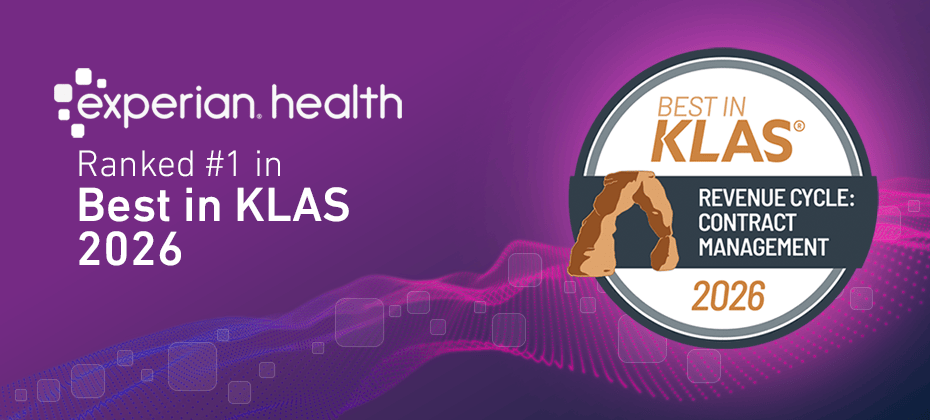
Healthcare claim denials persist as a significant challenge, impacting the efficiency, affordability and timeliness of healthcare delivery and hospitals’ financial well-being. They contribute a substantial portion of the staggering $265 billion annual in waste attributed to administrative complexities. On average, hospitals face a yearly loss of $5 million due to healthcare claim denials, amounting to 5% of their net patient revenue, according to the Journal of AHIMA.
Yet it appears that the rise in claim denial rates continues unabated. Experian Health’s State of Claims 2022 report revealed that 30% of respondents experience medical claims being denied in 10-15% of cases, and 42% confirm an increasing trend in denial rates from one year to the next.
There is no question that the claims denial process is ripe for innovation, and that’s where reducing healthcare claim denials with artificial intelligence (AI) comes in. Like many other sectors, healthcare providers are slowly but increasingly turning to automation and AI for more accurate data and better insights. The Experian Health survey shows over one-half of healthcare providers turn to AI-driven healthcare claims management software to reduce claim denials.
“Adding AI in claims processing cuts denials significantly,” Tom Bonner, Principal Product Manager at Experian Health, explains. AI automation quickly flags errors, allowing claims editing before payer submission. It’s not science fiction—AI is the tool hospitals need for better healthcare claims denial prevention and management.”
The current challenges in claims management
High patient volumes and complex payer policies
Experian Health’s 2022 State of Claims survey revealed that reducing denials was a top priority for almost three-quarters of healthcare leaders. Why? High patient volumes mean there are more claims to process, and changing payer policies and insurance coverage compound an already overwhelming problem.
An Sg2 report predicts that patient volume issues will continue over the next decade, with inpatient hospital volumes growing by 2%. This rise in patient numbers will require more data for claims management processing. Hospitals, often short-staffed, will have to allocate more resources to ensure claim approval and increase efforts to address claims denial.
In addition to managing increasing patient volumes, keeping track of changing payer coverage and requirements has always been challenging for providers. The inconsistency of these payer rules and communication problems exacerbate the situation. Healthcare providers may need efficient solutions to keep up with these rule changes or allocate more time and resources to addressing and revising claims.
Labor shortages and financial pressures
According to a data brief from the American Hospital Association, theincreasing rate of clinician burnout, the enduring effects of COVID-19, and ongoing strains on the healthcare workforce are compelling hospitals to recognize and tackle chronic labor shortages.
Notably, 80% of healthcare leaders acknowledge that chronic staffing shortages present significant risks for their organizations. Increasing denial rates is one way these risks manifest. As the State of Claims 2022 report confirms, 30% of respondents mentioned staffing shortages significantly contribute to healthcare claim denials. Additionally, Experian Health’s recent survey, Short Staffed for the Long-Term, which investigated the impact of healthcare staffing shortages, found that 70% of respondents facing staff shortages also experienced increasing denial rates.
Labor shortages mean fewer hands on deck to deal with the claims processing workload, while financial pressures on hospitals mean the stakes are higher than ever to solve the problem of claim denials.
Limitations and costs of manual claims processes
Health payers deny hospital systems about $260 billion worth of inpatient claims annually. Accordingto Experian Health’s survey, manual processing and a lack of automation are the primary reasons for these medical claim denials.
The State of Claims 2022reportfound that 61% of respondents do not automate claims submission and denial prevention processes, leaving them to rely on manually processing claims. However, manual claims management tools simply cannot keep up with the complexities and data-intensive nature of claims processing.
When claims processes are handled manually, healthcare workers are burdened with cumbersome tasks that could have been automated, there is a higher risk of errors that lead to claims denial, and there’ll be more need to dedicate extra time and effort to appeal denied claims. These intensive steps necessary for manual claims processing drain staff resources and create opportunities for money and time waste that are eventually detrimental to the hospital’s financial circumstances.
How AI and automation address healthcare claim denials
Automation and AI can ease the pressure by processing more claims in less time. They give providers better insights into their claims and denial data so they can make evidence-based operational improvements. AI tools achieve this by using machine learning and natural language processing (NLP) to identify and learn from data patterns and synthesize huge data swathes to predict future outcomes. While AI is ideal for solving problems in a data-rich environment, automation in claims processing can complete rules-based, repetitive tasks with incredible speed and reliability that a person might not achieve.
By using automation and AI in claims processing, healthcare providers can gain better insights into their claims and denial data, resulting in improved financial performance and greater efficiency.
Tom Bonner says, “AI in healthcare claims processing maximizes the benefits of automation for better claims processing, better customer experiences and a better bottom line for healthcare providers.”
However, the pace of AI adoption is somewhat slower in healthcare due to legacy data management systems and data silos. As efforts to improve interoperability progress, providers will have more opportunities to deploy AI-based technology. This prediction is already evident in claims management, where executives are keeping an ear to the ground to learn of new use cases for reducing claim denials with AI to help maximize reimbursements.
Key benefits of AI in healthcare claims management
Healthcare claims management upgraded with the inception of AI-driven healthcare claims management softwareexponentially benefits claims management through its predictive, accuracy, and error-reduction capabilities.
Predictive Analytics and Pattern Recognition: The benefits of AI in healthcare claims processing lie in the ability of AI-driven solutions to predict potential issues before they occur by analyzing claims and providing a probability of denial that allows the end user to intervene and determine the appropriate collection. AI can analyze patterns in historical claims data to predict future volumes and costs, so providers can plan accordingly without simply guessing at what’s to come.
Error Reduction and Clean Claim Submissions: AI can also assist in identifying inaccurate claims and improve claims processing accuracy to ensure clean claim submission and efficient revenue cycle management.
Case studies and real-world applications
AI and automation in claims processing are helping healthcare providers overcome the challenges contributing to increasing claim denial rates. Experian Health’s AI-driven and automation solutions, like AI Advantage™, enable clients to benefit from the full potential of AI and automation to minimize claim denials.
How Community Medical Centers uses AI Advantage to predict and prevent healthcare claim denials
Community Medical Centers (CMC), a non-profit health system in California, uses Experian Health’s new solution, AI Advantage, which uses AI to prevent and reduce claim denials. Eric Eckhart, Director of Patient Financial Services, says they became early adopters to help staff keep up with the increasing rate of denials, which could no longer be managed through overtime alone. “We were looking for something technology-based to help us bring down denials and stay ahead of staff expenses. We’re very happy with the results we’re seeing now.”
AI Advantage reviews claims before they are submitted and alerts staff to any likely to be denied based on patterns in the organization’s historical payment data and previous payer adjudication decisions.
CMC finds this particularly useful for addressing two of the most common types of denials: those denied due to lack of prior authorization and those denied because the service is not covered. Billers need up-to-date knowledge of which services will and will not be covered, which is challenging with high staff turnover. AI Advantage eases the pressure by automatically detecting changes in how payers handle claims and flagging those at risk of denial so staff can intervene. This reduces the number of denials while facilitating more efficient use of staff time. Eckhart says that within six months of using AI Advantage, they saw ‘missing prior authorization’ denials decrease by 22% and ‘service not covered’ denials decrease by 18% without additional hires.
Overall, he estimates that AI Advantage has helped his team save more than 30 hours a month in collector time: “Now I have almost a whole week a month of staff time back, and I can put that on other things. I can pull that back from outsourcing to other follow-up vendors and bring that in-house and save money. The savings have snowballed. That’s really been the biggest financial impact.”
How Providence Health found $30M in coverage and reduced denial rates with automated eligibility checks
Providence Health is a prominent health system with 56 hospitals and over 1,000 physician clinics, serving an annual patient volume of over 28 million. This magnitude of patient volume created greater issues with slow and manual payer eligibility processes and increased eligibility denials.
Furthermore, in response to Epic’s growing payer plan table, Providence Health sought an effective solution to merge and organize data on insurance plans, contracts, and reimbursement details and automate eligibility tracking within the system. Their search led them to Experian Health’s Insurance Eligibility Verification solution.
According to Emily Brown, Director of Operation Excellence, “Our search for a solution that seamlessly integrates with Epic led us to choose Experian as our preferred vendor, given their proven track record of working with Epic.”
Providence Health implemented Experian’s Eligibility solution, including a Bad Plan Code Detection tool to catch coding errors before submission. The solution also allowed them to stay connected to over 900 payers and provide backup connectivity to over 300 additional payers for uninterrupted service. The solution’sautomated work queues also helped staff work more efficiently.
Providence reduced denial rates, saving $18 million in potential denials in 5 months of implementing Experian’s Eligibility solution. The tool also helped them find $30 million in coverage annually while reducing staff workload.
How Schneck Medical Center prevents and triages denials with AI Advantage™
Schneck Medical Center delivers care to four counties in Indiana, supported by a team of over 1,000 employees, 125 volunteers, and close to 200 physicians. According to Skylar Earley, Director of Patient Financial Services, “The challenge we (Schneck Medical Center) sought to overcome by leveraging AI Advantage at our organization was just gaining more insight into how denials originate and what actions we can take to prevent those from happening.”
Schneck Medical Center collaborated with Experian Health to implement: AI Advantage™ — Predictive Denials and AI Advantage™ — Denial Triage. They aimed to use these tools to identify claims that were more likely to be denied so that the appropriate personnel could address them and clean them before sending them to payers. They also wanted to be able to identify and prioritize denials with the potential for revenue reimbursement that will impact their bottom lines.
AI Advantage™ — Predictive Denials enabled team members to make informed and timely decisions before submitting claims. In the first six months of using the tool, Schneck achieved a 4.6% average monthly decrease in denials. The time spent on denials decreased by 4x, and flagged claims were resolved in 3–5 minutes rather than the previous 12–15 minutes per correction.
With AI Advantage — Denial Triage, billers were able to redirect their effort on denials more likely to be reimbursed. This prioritization enables them to avoid wasting time on high-dollar claims that are unlikely to be paid.
“We had no insight into whether we were performing value-added work when we followed up and worked denials. Now we see those percentages,” says Skylar Earley, Director of Patient Financial Services
Steps to implementing AI in claims management
AI Advantage works in two stages in claims management, reducing claims denial and addressing denied claims to prioritize those with the best value for reimbursement.
Stage One: Predictive Denials
Stage one is Predictive Denials, which uses machine learning to look for patterns in payer adjudications and identify undocumented rules that could result in new denials. As demonstrated by CMC and Schneck Medical Center, this helps providers prevent denials before they occur.
Stage Two: Denial Triage
Stage two is Denial Triage, which comes into play when a claim has been denied. This component uses advanced algorithms to identify and segment denials based on their potential value so staff can focus on reworking the denials that will impact their bottom line.
Enhancing revenue cycle management with AI
Embracing integrated workflows uncovers novel applications for reducing healthcare claim denials with AI and automation. AI Advantage seamlessly works within ClaimSource®, which means staff can view data from multiple claims management tools in one place.These integrations amplify the benefits of each tool, giving healthcare providers better insights into their claims and denial data. With richer data, organizations will find new ways to leverage AI to increase efficiency, reduce costs and boost revenue.
Key differentiators
In addition to its AI solutions, Experian Health offers solutions that automate claims processing to facilitate claims management and increase efficiency.
ClaimSource® helps providers manage the entire revenue cycle by creating custom work queues and automating reimbursement processing. This intelligent healthcare claims management software ensures clean claims before they’re submitted, helping to optimize the revenue cycle. The software generates accurate adjudication reports within 24 to 72 hours to speed up reimbursement.
ClaimSource ranked #1 in Best in KLAS 2024, for its success in helping providers submit complete and accurate claims. This tool prevents errors and helps prepare claims for processing. Because the claims are error-free, providers can optimize the reimbursement processes and get their money even faster.
Another Experian Health solution, Enhanced Claim Status, improves cash flow by responding early and accurately to denied transactions. This solution gives healthcare providers a leg up on denied, pending, return-to-provider, and zero-pay transactions. The benefits include:
- Provides information on exactly why the claim was denied
- Speeds up the denials process
- Automates manual claims follow-ups
- Integrates with HIS/PMS or ClaimSource
- Automation frees up staff to focus on more complex claims
Denials Workflow Manager integrates with the Enhanced Claim Status solution to help eliminate manual processes, allowing providers to optimize claims submission and maximize cash flow.
Using AI and automated solutions to prevent healthcare claim denials
There’s no question that healthcare claims denials management is an unwieldy, time-consuming, and ever-changing process. Reimbursement is complex, but human error plays a large part in missed opportunities and lost revenue. The revenue cycle becomes seamless with AI and automation in healthcare claims management. Any healthcare provider seeking faster reimbursement and a better bottom line knows that improving claims management is critical to better cash flow. AI and automation-driven claims management software offers healthcare organizations a way to achieve these goals.
Contact Experian Health today to prevent healthcare claim denials and improve your claims management process with AI Advantage and other denial management solutions.


